Instrument And Equipment Wholesale
Premium Böhme Abrasion Testing Machine Manufacturer in China
Introducing the Böhme Abrasion Testing Machine, a specialized instrument engineered for precise measurement of wear resistance. This advanced system evaluates the durability of materials such as concrete, natural stone, and floor coverings by subjecting samples to controlled abrasive action. It accurately quantifies material loss, making it essential for quality control and performance assessment in construction and material science industries.
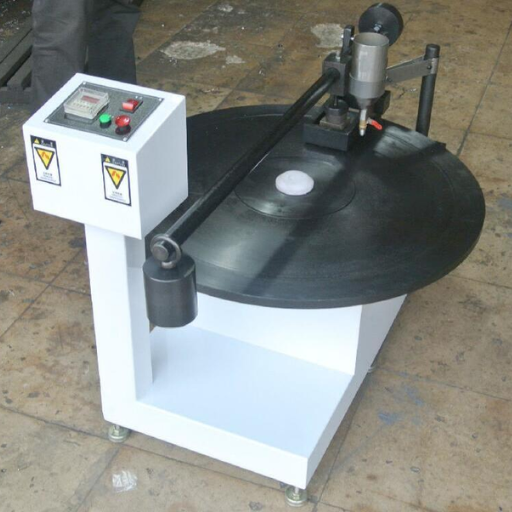
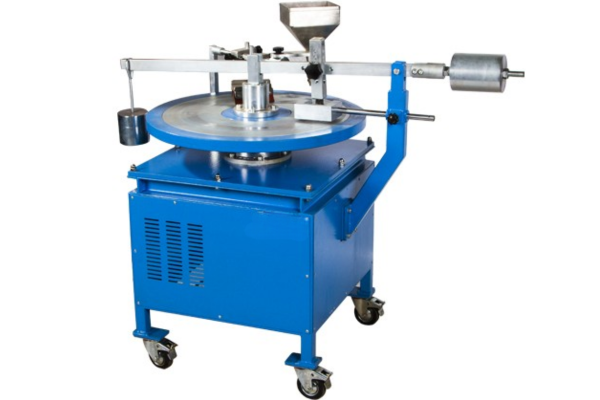
What Is A Böhme Abrasion Testing Machine
-
A Böhme Abrasion Testing Machine is a specialized instrument used to determine the resistance of materials, primarily rigid ones like concrete, natural stone, and pavement slabs, to abrasive wear.
-
It operates by subjecting a sample to abrasive action from corundum grinding powder under a specified load and rotational movement of a grinding wheel.
-
The machine measures the volume or depth of material loss from the sample after a set number of test cycles.
-
This test is standardized (e.g., EN 1338, DIN 52108) and provides critical data for evaluating the durability and suitability of materials for applications exposed to wear.
-
Equipped with precise controls for load, rotation speed, and test duration, Böhme testers ensure repeatable and reliable results for quality control and material research.
Main Features of Böhme Abrasion Testing Machine
Böhme Sbrasion Testing Machine allows for detailed analysis of materials under controlled conditions, providing critical data for research, development, and quality assurance.
Precise Wear Measurement
Accurately quantifies the volume or depth of material loss due to abrasion, providing reliable data on a material's resistance to surface wear under controlled conditions.
Robust Construction
Built with durable components and a sturdy frame capable of withstanding the forces and abrasive materials involved in testing hard materials like concrete and stone, ensuring long-term reliability.
Standardized Testing Compliance
Engineered to meet specific international and national standards (like EN or DIN), ensuring that tests are performed correctly and results are comparable and accepted across the industry.
Reliable Durability Assessment
Provides crucial insights into the expected lifespan and performance of materials in environments subject to significant wear, enabling informed material selection and quality control decisions.
Böhme Abrasion Testing Machine For Sale
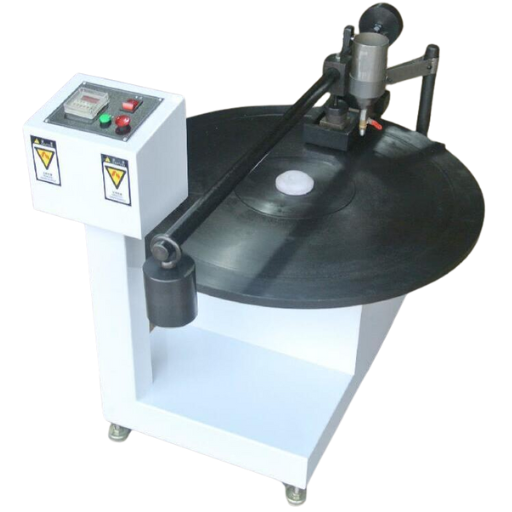
Böhme Abrasion Testing Machine For Concrete Stone
Measures the abrasion resistance of concrete, natural stone, and similar materials by quantifying wear loss under controlled conditions, ensuring product durability.
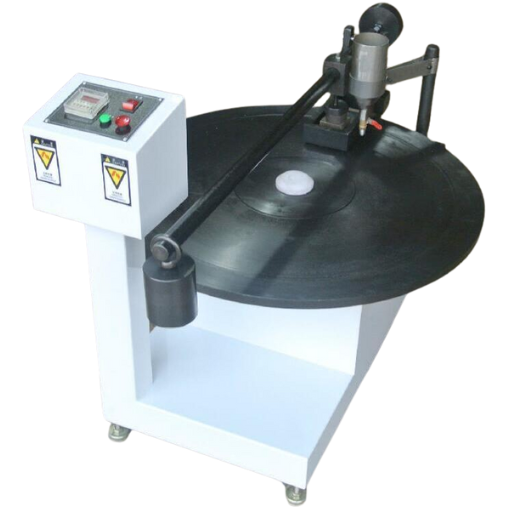
ASTM BS EN 13892-3 Böhme Abrasion Test Machine
Compliant tester for determining the abrasion resistance of screeds and concrete surfaces according to ASTM, BS, and EN 13892-3 standards. Provides accurate wear data.
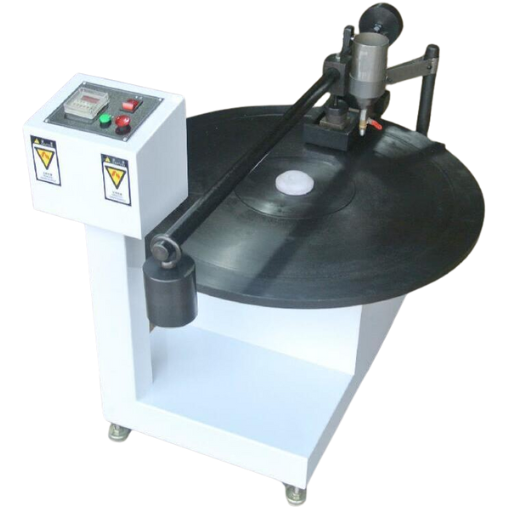
WTB-B Böhme Abrasion Tester EN14157 DIN 52108
A specialized WTB-B model for testing the abrasion resistance of natural stone, meeting the requirements of EN 14157 and DIN 52108 standards for reliable results.
Böhme Abrasion Test Machine Technical Specifications
| Parameter | Details |
|---|---|
| Applicable Materials | Suitable for testing concrete, natural stone, tiles, screeds, and similar hard materials. |
| Standards Compliance | Designed to meet specific international standards (e.g., EN 1338, DIN 52108, EN 13892-3). |
| Abrasive Medium | Utilizes standard corundum abrasive powder according to test method specifications. |
| Applied Load | Features a mechanism to apply a precise, specified load to the test sample during abrasion. |
| Abrasion Surface & Speed | Includes a rotating grinding wheel and controls for specified cycles and speed. |
| Wear Measurement Method | Allows for evaluation of abrasion resistance by measuring volume loss or wear depth. |
| Sample Dimensions | Accommodates standard test sample sizes defined by the relevant testing method. |
| Automation Level | Offers controllable test cycles and automatic shut-off upon completion of a test program. |
| Data Output | Provides data on test duration and cycles for calculating wear resistance index. |
| Safety Features | Typically includes protective housing and emergency stop for safe operation. |
Application Industries of Böhme Abrasion Testing Machine
Construction: Testing concrete, screeds, and floorings for wear resistance to ensure durability in high-traffic areas.
Stone Industry: Evaluating the abrasion resistance of natural and artificial stone for applications in flooring, paving, and cladding.
Building Materials Manufacturing: Quality control and development of materials like tiles, pavers, and precast concrete elements to meet wear performance standards.
Material Science Research: Characterizing the surface durability and abrasive properties of new hard composite materials.
Civil Engineering: Assessing the suitability of various aggregates and binders for use in road surfaces and infrastructure projects.
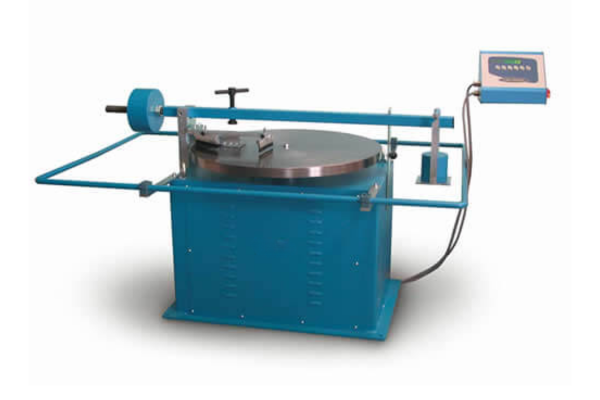
Request Information on Böhme Abrasion Testing Solution!
Seeking reliable testing for concrete, stone, or similar hard materials? Discover our advanced Böhme Abrasion Tester, engineered for precise measurement of wear resistance. Ideal for ensuring durability and compliance with standards like EN and DIN, it offers accurate quantification of material loss under controlled abrasive conditions. Learn how this specialized equipment can enhance your quality control and material development. Connect with us today for details and a custom consultation!
Frequently Ask Questions
Q: What is Böhme abrasion testing?
A: Abrasion testing using a Böhme machine is a standardized method to determine the resistance of hard materials like concrete, natural stone, and screeds to abrasive wear. It quantifies the amount of material removed from a sample surface under controlled conditions.
Q: How does a Böhme abrasion testing machine function?
A: The abrasion testing machine works by placing a precisely sized sample on a rotating platform. A specified load is applied to the sample while a defined amount of abrasive material (typically corundum) is introduced between the sample and the rotating grinding wheel, simulating wear.
Q: What materials are suitable for testing with this wear testing machine?
A: This wear testing machine is specifically designed for testing hard, rigid materials used primarily in construction and building, such as concrete blocks, natural stone slabs, terrazzo tiles, ceramic tiles, and various types of screeds and floor coverings.
Q: What are the benefits of using a Böhme abrasion resistance testing machine?
A: Using a dedicated abrasion resistance testing machine like the Böhme ensures accurate and repeatable assessment of material durability against surface wear. This is vital for quality control, material development, predicting service life, and ensuring compliance with construction standards.
Q: Which industry standards does the Böhme Abrasion Tester comply with?
A: The Böhme Abrasion Tester is designed to comply with key international and national standards for testing the abrasion resistance of stone and concrete, including widely recognized standards such as EN 1338, DIN 52108, and EN 13892-3.
Q: How is material wear measured and reported after a Böhme test?
A: After the test cycles are completed, the amount of wear is typically measured by determining the volume loss or the depth of material removed from the sample surface. This wear data is then used to calculate the abrasion resistance index or class, as specified by the relevant standard.
Q: What are the main applications for this type of tester?
A: The primary applications are in the quality control and research & development of building materials. This includes testing paving stones, floor tiles, concrete elements, and natural stone products to ensure they meet performance requirements for durability in pedestrian or light-vehicular traffic areas.
Q: Is specific sample preparation required for Böhme abrasion testing?
A: Yes, standard test methods specify precise requirements for the size and preparation of test samples. Samples must typically be cut or prepared to exact dimensions and may require conditioning before testing to ensure consistent and comparable results.
